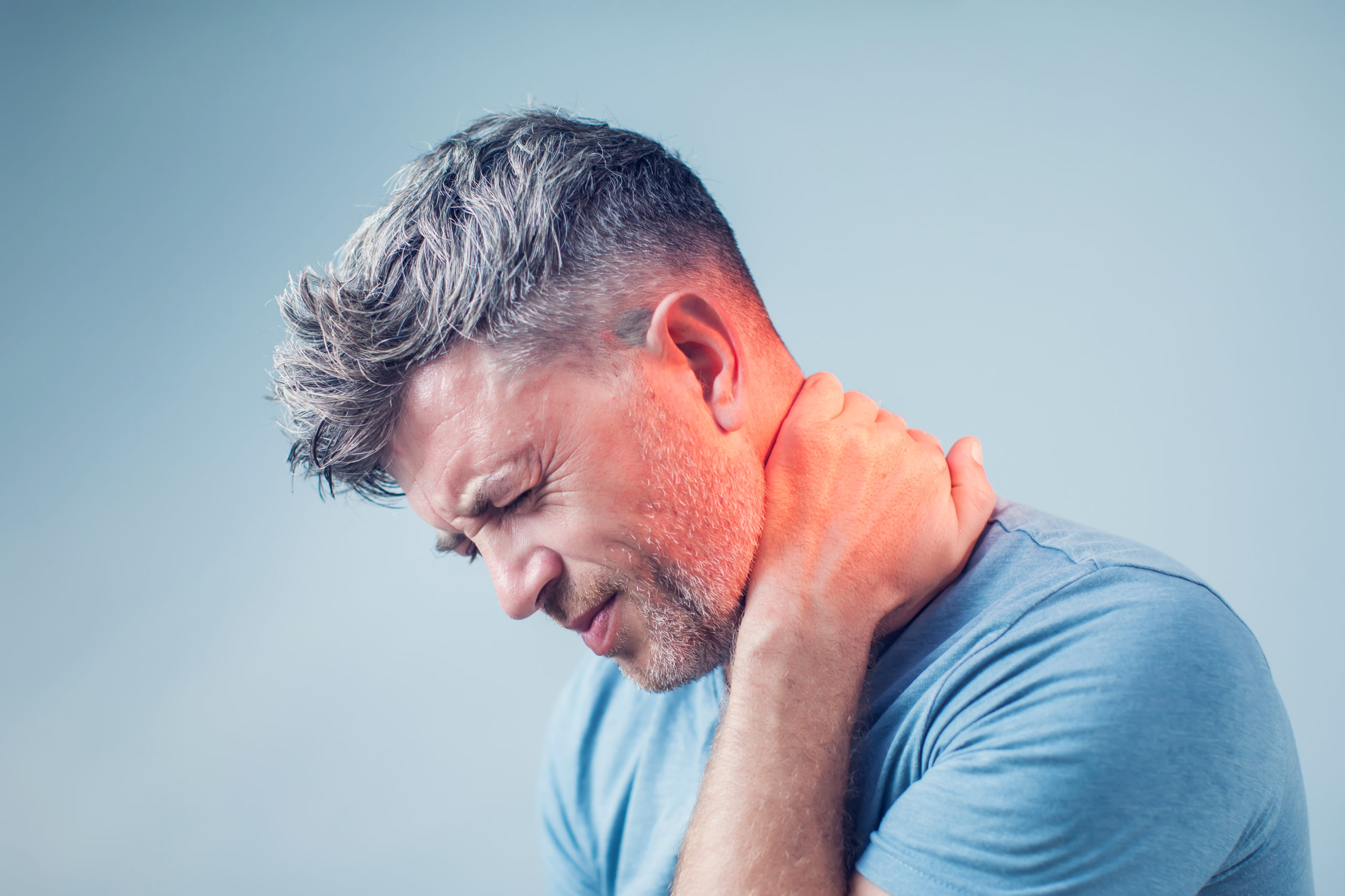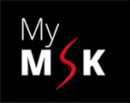Neck pain, usually occurs at the back of the neck and often gets better on its own or with a simple painkiller within a few days.
People experience neck pain for various reasons that may not necessarily be due to any underlying health issue.
Given today’s lifestyle, neck pain is more common in adults, affecting nearly one-third of the adult population in the world.
Symptoms of Neck Pain
Agony in your neck is common but, but it becomes a problem when it interferes with one’s daily activities.
The pain may range from dull aching to sharp shooting pain that moves down the arms and hands.
The most common symptoms of neck pain are:
1. Ache or stiffness in the middle, sides, or back of the neck.
2. Difficulty moving your head even while sleeping.
3. Clicking noises in the neck.
4. Feel dizzy while moving your head sideways or looking up.
5. Sensitivity or agony that radiates along the shoulders and arms from the neck.
6. Numbness, tingling, or weakness in the arm.
7. Pain in the neck when lifting your arms to the side.
Causes of Neck Pain

Many people experience neck and shoulder issues because of poor posture. Also, because of the flexibility of the neck, it is more vulnerable to injury and strain.
It is also more common in women than men. Some of the most common causes of neck sprain are
1. ‘Wear and tear’ from ageing or occupation or posture ‘termed Degeneration or Arthritis or Cervical Spondylosis’
2. Injuries or fractures from falls or accidents
3. Lifting heavy objects awkwardly causes strain on the neck muscles
4. A sprain or strain in the neck muscles, ligaments, or tendons
5. Cervical herniated disc.
7. Nerve compression from a prolapsed disc in the neck region or Arthritis
8. Temporomandibular Joint Disease(TMJ neck pain)
9. Whiplash
In rare cases, neck pain also may be due to:
1. Cancers and tumours.
2. Congenital abnormalities.
3. Heart attack(often accompanied along with other symptoms such as pain in the left shoulder/jaw).
Diagnosis Of Neck Pain

Diagnosing your strain usually begins with a careful history regarding the symptoms and the nature and intensity of pain, followed by a physical examination.
Your doctor may check the flexibility and movement of your neck.
They will also enquire about your regular activities and medical history to check for any previous injury in the neck or spine.
If further clarity is required, your doctor may ask for some tests, including blood tests, X-rays, and scans such as CT/MRI. In rare cases, they may also ask for electromyography, nerve conduction studies(NCS).
Treatment for Neck Pain
The treatment for neck pain depends upon the symptoms and causes.
Most neck and shoulder ache does resolve with self-care and improved posture along with medication.
However, chronic neck sprain is treated with some of the following methods:
1. Medication
Many over-the-counter pain relievers are available to reduce pain or inflammation. Your doctor may suggest non-steroidal anti-inflammatory medications (NSAIDs) that include both pills and creams or ointments to relieve pain.
However, these medications may only be effective temporarily as quick-fix. Often the pain does return or the patient has regular flare-ups especially in Arthritis or Disc herniations
2. Therapeutic Injections
Your doctor may administer therapeutic injections such as soft tissue injections or facet joint injections. To treat more severe pain or pain radiating down to the fingers, your doctor may give you selective nerve root blocks or even cervical epidural steroids.
More advanced procedures are also available if these don’t work. Epidural steroid injections are particularly beneficial for people suffering from a slipped disc in the neck.
3. Acupuncture
Acupuncture for discomfort neck is considered safe and effective for treating chronic neck and shoulder ache. However, you may need repeated sessions to improve the mobility of the neck and reduce pain.
4. Physical Therapy
Physical therapy includes a series of active and passive treatments to strengthen, relax and relieve neck pain. It is a good alternative to surgery and other medications to treat neck and shoulder ache.
5. Chiropractic Care
Chiropractors use several cervical manipulation treatments: flexion-distraction technique, specific spinal manipulation, and instrument-assisted manipulation to relax the joints.
They may also include manual therapies and therapeutic exercise in the routine for a speedy recovery.
6. Surgery
Surgery is often the last course when all other treatments have been tried and failed. However, your doctor may suggest it for treating spinal cord or nerve-related issues or when all the other methods have failed. Often with other measures, surgery can be avoided
Some Common Questions That People Ask Dealing With Neck Pain
How Do You Know if Neck Pain Is Serious?
Most cervical pain goes away within a few days- however, if it lasts for more than a month and does not respond to physical treatment or pain relief medication, it’s time for a check-up.
Most importantly, if your pain worsens or shoots down to your arms even with light movement or pressure, then it is better to get examined thoroughly.
When Should You Worry About Neck Pain?
The aching neck is uncomfortable, but you must seek immediate care if your neck sprain is accompanied by other symptoms as high fever, chills, numbness or tingling in arms or face, chest ache, difficulty in swallowing, or a sudden weight loss. If you get night pain this can also be a sign of something serious and it is always better to get checked/
Why Do I Have Neck Pain Going To Shoulder?
Pain in your neck can go down to your shoulders to arms and hands as the neck and shoulders are closely connected. It is often caused by a trapped nerve, slipped disc in the neck or neck strain. Sometimes it can be from ‘referred pain’ from Neck Arthritis. Consult a doctor immediately if pain worsens.
Why Does My Neck Hurt When I Lift Weights?
Pain in the neck from a slipped disc in the neck is one of the main reasons for suffering in the back of the neck while lifting weights. This is often noticeable when doing an exercise such as the dumbbell lateral raises or the overhead shoulder press (military press) It can also be due to a trapped nerve. Lifting heavy weights can strain the neck, shoulder, and back muscles. Therefore, whenever you lift weights, you must maintain proper posture.
Why Do I Have Neck Pain When I Wake Up?
Sleeping in a bad position, such as sleeping on your stomach or not providing enough support to your neck during the night, can cause sting in your neck when you wake up.
The wrong pillow can also strain your neck muscles and can cause a possible early degeneration of the neck. You can prevent this by improving your sleeping posture and using the right pillows.
It’s always a good idea to get a pillow assessment from an Osteopath and Chiropractor. This is because they can check the alignment of your cervical spine and advise you if the pillow is the correct one in terms of making the pain in the back of your neck better or worse when you sleep.
Can I Have Neck Pain Because of Jaw Issues?
Yes, jaw problems can cause pain in your neck. Neck pain associated with jaw issues comes under Temporomandibular Joint Dysfunction (TMJ)that is caused due to misalignment/injury or arthritis in the TMJ joint. TMJ pain or degeneration responds well to treatment.
Conclusion
Pain in the neck can become troublesome if you don’t receive proper care at the right time. There is a range of treatments available for this problem and although many patients will live with it rather than seeking treatment, it can affect their daily lives.
You must seek medical care immediately if you feel pain in your neck with numbness in the arms or with fever or dizziness or weight loss.
For a detailed assessment of your neck pain, book in at MyMSK clinic here

